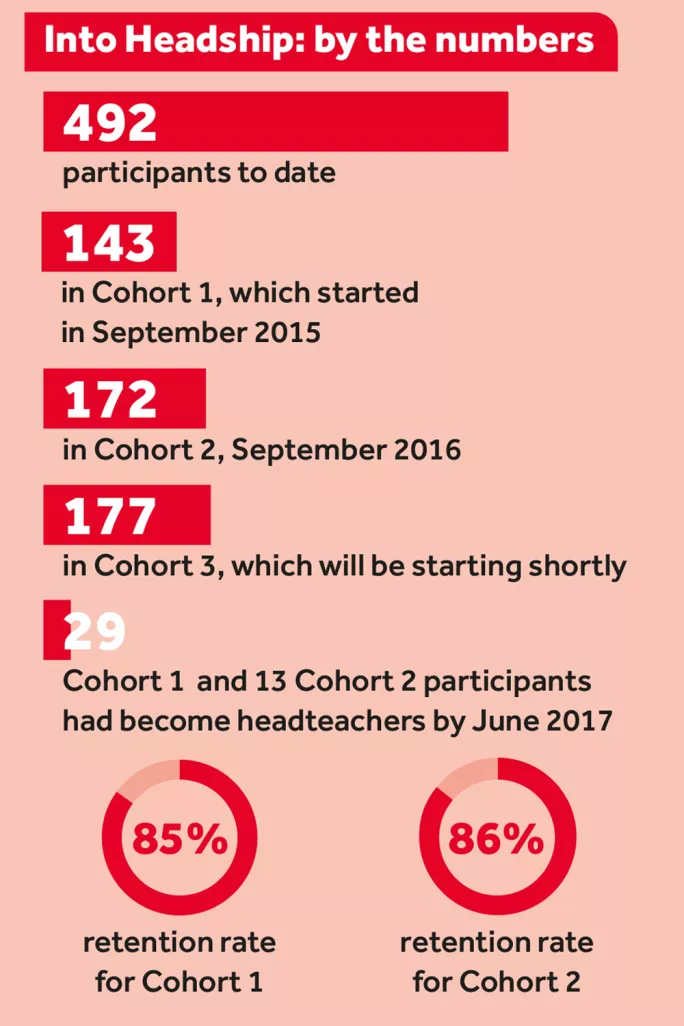What next for the school leadership champions?

When education secretary John Swinney unfurled the long-awaited Education Governance Review, much of it had been anticipated. But one development caught many by surprise: the Scottish College for Educational Leadership (Scel) was to become part of Education Scotland, a move designed to “simplify the landscape and provide clarity to teachers” around professional learning and leadership.
It had not been long since commentators were widely predicting the demise of Education Scotland - it had been roundly criticised in Parliament for being bureaucratic and aloof from the profession - or at least that its inspection and curriculum development functions would be split. Instead, it emerged stronger.
A key part of its renewal will come from taking in the small but energetic Scel team of 10, which has won plaudits for creating a wide range of leadership programmes since its formation in 2014. Scel has helped change the very concept of leadership from the hero headteachers of old to the idea that everyone in a school is a leader.
The news, announced in June, was not rapturously received by educators with experience of Scel. One headteacher tweeted that Scel’s independence enabled it to innovate and that becoming part of Education Scotland “makes no sense whatsoever”.
An opportunity to grow
In her first interview since the surprise news, Scel chief executive Gillian Hamilton told Tes Scotland she was upbeat: seven weeks on, it was “business as usual” for now and Scel’s ambitions were undimmed - it was “continuing to expand leadership opportunities”.
At the time, however, the mood was less certain. “The team were shocked and they were surprised… There was uncertainty, but that’s moving forward now,” said Ms Hamilton.
But she added: “For me it’s not about Scel being taken over or subsumed, it’s about Scel’s work being grown and enhanced and becoming part of a new and revitalised organisation.” The size of Education Scotland provides “a real opportunity to grow Scel’s work” while retaining a distinct identity.

Scel, which started with three staff in 2014, is best known for running the Into Headship programme, which will become mandatory for aspiring headteachers from 2020, but now has 10 programmes aimed at all post-probation stages of teaching careers.
“We’re really proud of how teachers associate with the Scel brand,” she said. Crucially, however, this is “not just a positive glow” of feeling towards the body - Scel is currently pulling together hard evidence of the “demonstrable difference” its programmes have made to pupils’ progress.
“This next stage has to be about growing Scel, increasing the impact, increasing the influence, and actually recognising that a larger organisation will be able to provide some support that I don’t have just now - so that’s a positive,” she said.
Important feedback
Pivotal to Scel’s success, said Ms Hamilton, is that, unlike past leadership programmes in Scotland, teachers have helped shape the organisation’s work. This includes schemes such as the Scel Fellowship, which helps experienced headteachers show the impact of their work beyond the school gates, so that “it’s not something we’re doing to teachers - teachers have worked with us”.
Ms Hamilton rebuts any suggestion that, amid a mounting workload, teachers are not interested in professional learning. Fearghal Kelly, Scel’s lead specialist for teacher leadership, has travelled Scotland canvassing 1,000 teachers’ views and found high interest - as long as programmes are run in a helpful way. Teacher feedback, for example, led to large chunks of Scel courses being available online.
Like so much of the Education Governance Review, details of Scel’s future remains unclear. What, for example, will be the chain of command, how much autonomy will it have, and will “Scel” or “Education Scotland” appear at the bottom of staff emails?
But recruitment has restarted following a pause after the June announcement and its budget - Scel is funded mostly by the Scottish government - remains in place for the financial year, allowing time for more clarity before 1 April.
“Looking at how we maintain the Scel brand and identity is an important part of the planning for the transition,” said Ms Hamilton. Indeed, she believes that just as Scel will adapt to Education Scotland, the larger organisation may learn from some of her team’s work, such as its use of social media to fire teachers’ interest.
Making contact with 1,000 teachers and seeing nearly 500 go through Into Headship has been “fabulous”, said Ms Hamilton, but she stressed that there are around 2,500 schools in Scotland and over 50,000 teachers.
“I’m actually quite excited. If we’re working as part of that bigger organisation, we can extend that engagement,” she said.
You need a Tes subscription to read this article
Subscribe now to read this article and get other subscriber-only content:
- Unlimited access to all Tes magazine content
- Exclusive subscriber-only stories
- Award-winning email newsletters
Already a subscriber? Log in
You need a subscription to read this article
Subscribe now to read this article and get other subscriber-only content, including:
- Unlimited access to all Tes magazine content
- Exclusive subscriber-only stories
- Award-winning email newsletters